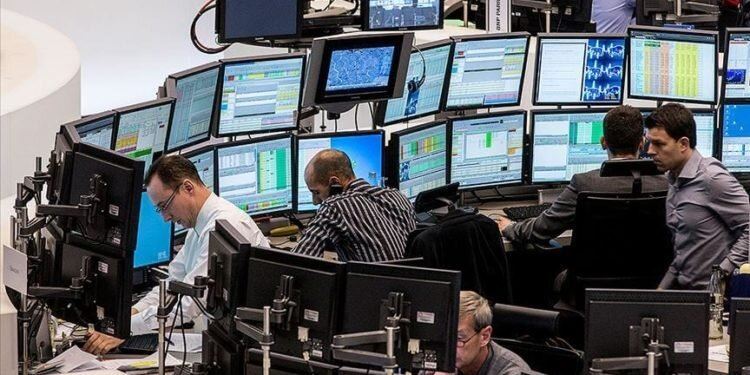The non-farm employment data, which rose above the expectations in the US last week, challenged the expectation that the Fed will slow down in interest rate hikes as of September.
While the inflation data to be announced tomorrow are expected to reduce the uncertainties about the future of monetary policy in the country, the forecasts that inflation may surprise after the strong course in the labor market increase the risk perception.
On the other hand, the continued weakening of companies' growth expectations, along with the recession risk, makes pricing difficult, while the inverting yield curve in the bond markets continues to become more pronounced.
While the difference between the US 10-year bond yield and the 3-month Treasury bill yield decreased to 21 basis points, according to the studies published by the Fed, if the US 10-year bond yield falls below the 3-month Treasury bill yield, the country will enter a recession in the next 6 to 18 months. envisaged.
Despite the concerns about growth, pricing in money markets, which indicates that the Fed will not take a step back in the fight against inflation, stands out. Accordingly, while the Fed is expected to increase interest rates by 75 basis points with a 65 percent probability at its September meeting, it is expected to increase interest rates by 25 basis points with a 53 percent probability at the November meeting.
With these developments, the S&P 500 index depreciated by 0.12 percent and the Nasdaq index depreciated by 0.10 percent in the New York stock market yesterday, while the Dow Jones index rose by 0.09 percent. Index futures contracts in the USA started the new day with limited value gains.
While the dilemma between growth and inflation on the European side makes pricing difficult, the energy supply crisis continues to be the leading risk for the region.
The macroeconomic data calendar, which will intensify in the region from tomorrow, is expected to have an impact on the direction of the markets.
Yesterday, DAX 40 index gained 0.84 percent in Germany, FTSE 100 index gained 0.57 percent in England, CAC 40 index gained 0.80 percent in France and FTSE MIB 30 index gained 0.62 percent in Italy. Index futures contracts in Europe started the new day with a decrease.
While the stock markets in Asia started the day with an increase, excluding Japan, the new type of coronavirus (Kovid-19) measures that eased in the region increase the risk appetite.
Although optimism about economic activity is increasing, the military exercises carried out by China near Taiwan are causing the cautious approach to come to the fore.
With these developments, Nikkei 225 index depreciated by 0.9 percent in Japan close to the closing, Shanghai composite index was 0.15 percent in China, Kospi index was 0.45 percent in South Korea and Hang Seng index was 0 percent in Hong Kong. 20 rose.
BIST 100 index, which improved its domestic record of the highest level it saw yesterday to 2,802.83 points, also broke the closing record by completing the day at 2,795.06 points, 1.62 percent above its previous closing.
Dollar/TL, on the other hand, is trading at 17.9570 at the opening of the interbank market today, after closing at 17.9418 with an increase of 0.18 percent yesterday.
Analysts stated that the data agenda is weak today and that they expect inflation data to be announced in the USA, China and Germany tomorrow.
Noting that the news flow on geopolitical developments will also be in the focus of investors, analysts said that technically, 2,800 and 2,820 levels in the BIST 100 index are resistance and 2,750 and 2,720 points are support.
The data to be followed in the markets today are as follows:
15.30 US, Q2 non-farm productivity, labor costs











Comments
No comment yet.